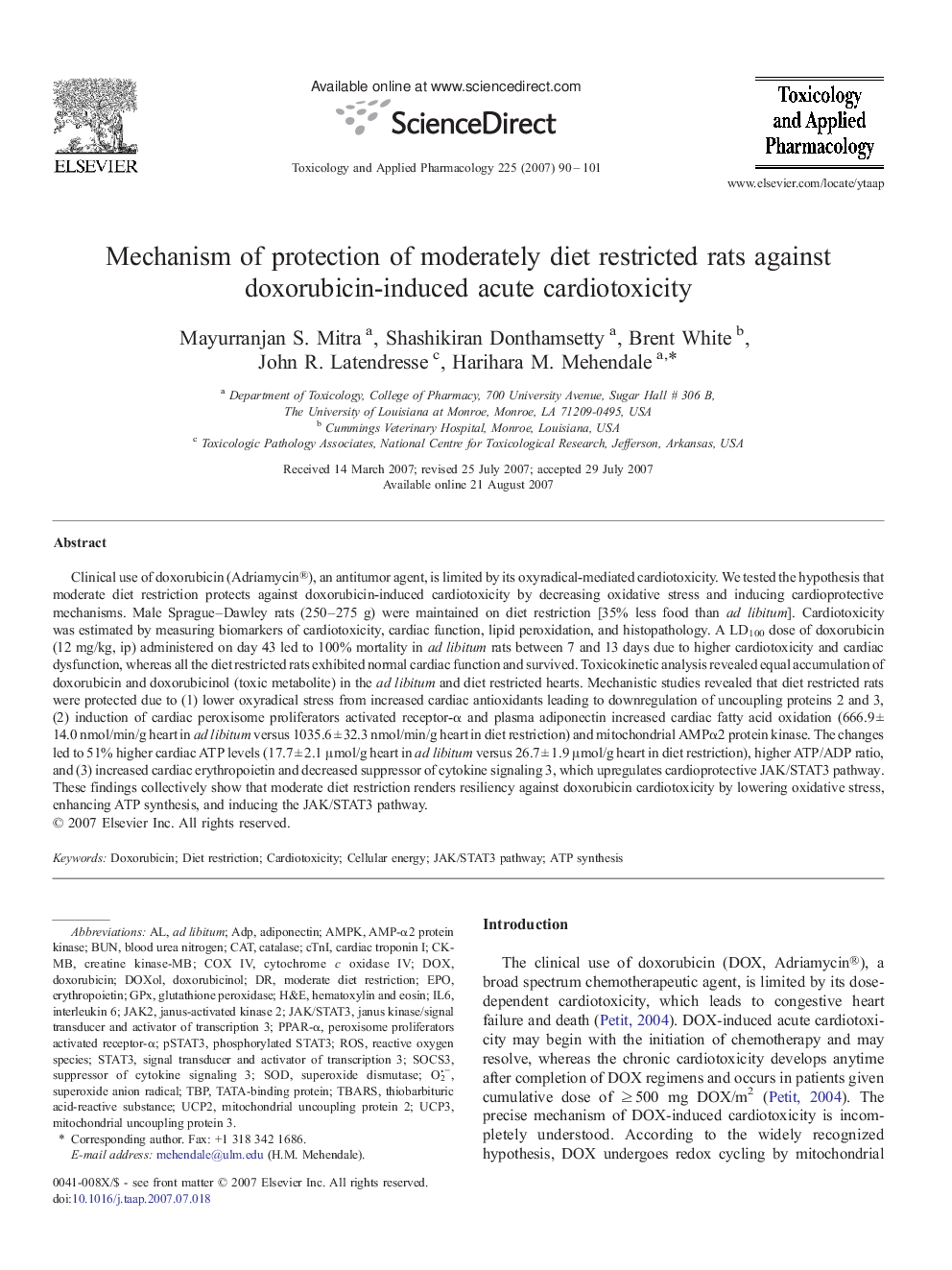| Article ID | Journal | Published Year | Pages | File Type |
|---|---|---|---|---|
| 2571479 | Toxicology and Applied Pharmacology | 2007 | 12 Pages |
Clinical use of doxorubicin (Adriamycin®), an antitumor agent, is limited by its oxyradical-mediated cardiotoxicity. We tested the hypothesis that moderate diet restriction protects against doxorubicin-induced cardiotoxicity by decreasing oxidative stress and inducing cardioprotective mechanisms. Male Sprague–Dawley rats (250–275 g) were maintained on diet restriction [35% less food than ad libitum]. Cardiotoxicity was estimated by measuring biomarkers of cardiotoxicity, cardiac function, lipid peroxidation, and histopathology. A LD100 dose of doxorubicin (12 mg/kg, ip) administered on day 43 led to 100% mortality in ad libitum rats between 7 and 13 days due to higher cardiotoxicity and cardiac dysfunction, whereas all the diet restricted rats exhibited normal cardiac function and survived. Toxicokinetic analysis revealed equal accumulation of doxorubicin and doxorubicinol (toxic metabolite) in the ad libitum and diet restricted hearts. Mechanistic studies revealed that diet restricted rats were protected due to (1) lower oxyradical stress from increased cardiac antioxidants leading to downregulation of uncoupling proteins 2 and 3, (2) induction of cardiac peroxisome proliferators activated receptor-α and plasma adiponectin increased cardiac fatty acid oxidation (666.9 ±14.0 nmol/min/g heart in ad libitum versus 1035.6 ± 32.3 nmol/min/g heart in diet restriction) and mitochondrial AMPα2 protein kinase. The changes led to 51% higher cardiac ATP levels (17.7 ± 2.1 μmol/g heart in ad libitum versus 26.7 ± 1.9 μmol/g heart in diet restriction), higher ATP/ADP ratio, and (3) increased cardiac erythropoietin and decreased suppressor of cytokine signaling 3, which upregulates cardioprotective JAK/STAT3 pathway. These findings collectively show that moderate diet restriction renders resiliency against doxorubicin cardiotoxicity by lowering oxidative stress, enhancing ATP synthesis, and inducing the JAK/STAT3 pathway.
